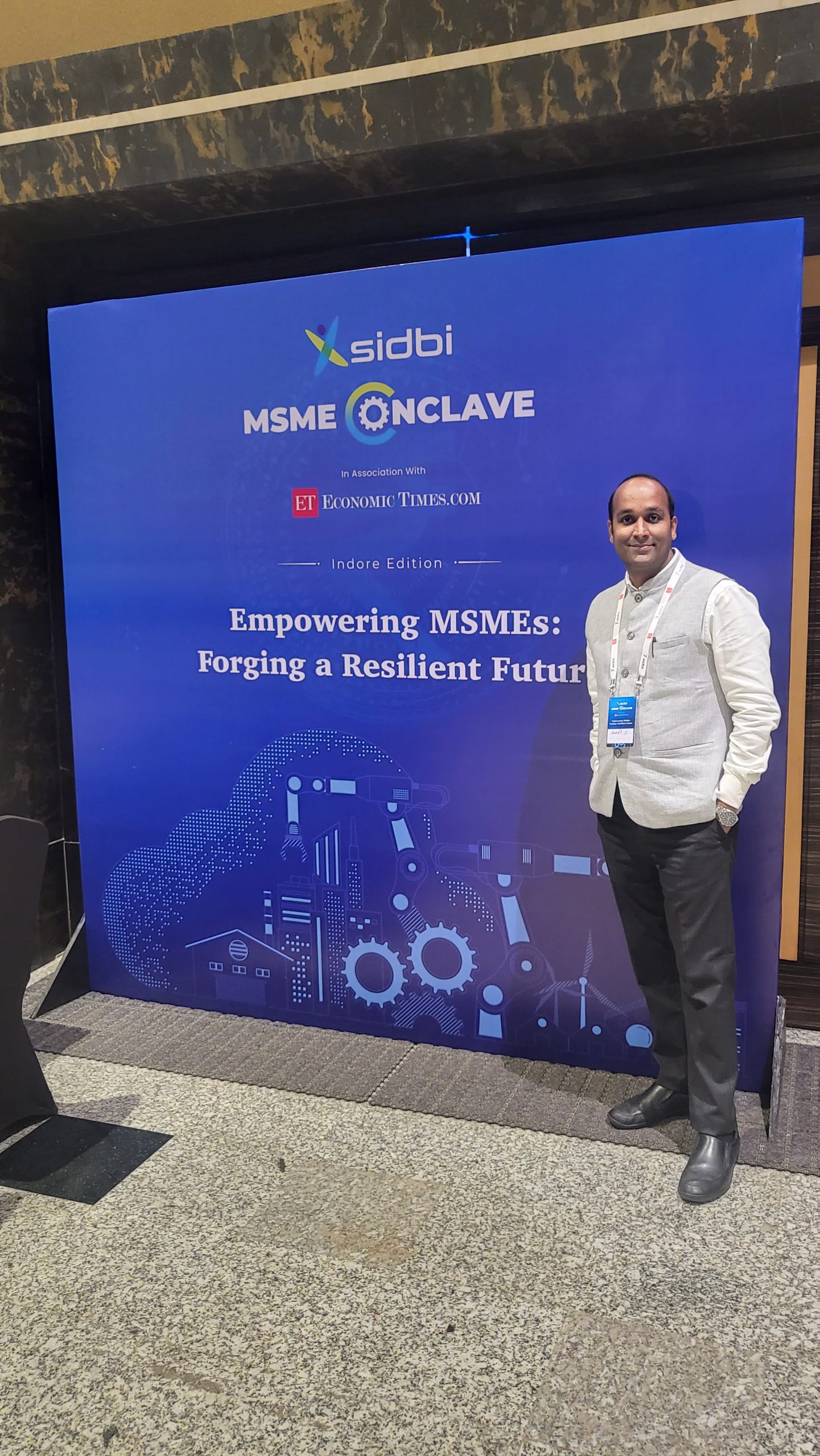The Indian MSME sector is the second largest employer after agriculture sector for the country. Not just this, MSME sector can be accredited as the most important tool of ensuring equal distribution of wealth and resources resulting into de-risking of the economy. MSMEs work in sync with large industries as supporting units and thus, contribute significantly in the inclusive industrial & economic development of the country contributing over 40% of industrial output.

With over 300 lacs + SMEs in India and over 115 lac plus Udhyog Aadhar registered MSMEs (as per https://udyogaadhaar.gov.in data), this sector has huge untapped potential. With enabling government policies and careful handholding, this untapped potential can essentially be converted into the source of fast track growth of the economy.
Based on an overall review and analysis of the existing economic scenario, the key challenges for the Indian MSME sector can be classified in following heads-
- Availability of efficient technology
- Managing Global Competitiveness
- Access to required Financial resources
While a lot of policy level framework has been developed to address the above, the third aspect highlighted above i.e. Access to required financial resources still remains the weakest pillar of foundation for the MSME segment. Various schemes, incentives and programs, all directed to improvise the access to affordable finance for MSME units have not been able to result into expected measurable outcomes. There are various reasons for it but in view of the author, the prime reason is the approach adopted by the present banking sector i.e. the asset based financing instead of the cash flow based financing.

Let’s first understand the basic difference in these two approaches. While Cashflow based financing approach depends and examines ability of an enterprise to achieve projected financial performance and accordingly, arrives at the possible financing gap at the hand of entrepreneur after accounting for required margin money in hand. Lending decisions are concluded based on this gap and ideal mix of debt & equity for any given industry. It does not necessarily depend on the available asset cover in the hands of the enterprise, though availability higher asset cover can result into interest rate savings in the hands of the borrower entity while improving the risk framework for the lender. In a free cash flow based financing framework, the entrepreneur and the lender, both will have to be equipped with required skills in estimating the future business performance and the focus is more on future cash flows. Those who are able to operate in any given business environment by estimating and mitigating risks, will have access to require pool of funds, Thus, expertise is required at both ends i.e. the enterprise and the lender.
As against this, the asset based financing frameworks has a simple tenant i.e. against any lending exposure that a Bank / FI is willing to offer, what is the level of asset coverage that is being offered by the enterprise in form of real estate, liquid assets, etc. The focus is more on offering loans by linking them as certain % of available asset cover in hand with borrower. What happens, the ability and economic performance of an enterprise shrinks and it is forced to operate within the available asset coverage only. Its potential, its ability to operate at greater level of operations is ignored or restricted. And mind you, as we talk of asset based financing post the effects of large corporate NPAs like KingFisher, NiMo, etc etc…. there are public sector banks in market asking MSMEs for a 200% asset coverage if they need to access certain particular financing products. Yes, you got it right, 200%.
Also, for those who may argue about required skills for appraising and evaluating future cash flows only and ignoring asset base may kindly note that Indian banks have adequate experience in the cash flow based financing and over 100 crore worth of projects have been appraised and funded by them in the past 15years… Yes, it is true. Sectors like Infrastructure, Transportation, Urban Development, Renewable Power have majorly been financed under cash flow based financing program called Project Financing through Public Private Partnership (PPP) , Built-Operate-Transfer (BOT) and few other fancy names, The question is, but, who were the direct beneficiaries ?? Check the interest and you will know that a major chunk of these funds have been given to large corporate entities, of course against a strict appraisal and stricter term sheet. But it has happened, right !
So the point is, when it can be done for large corporates, why not for MSMEs? If an enterprise has required expertise to produce 5 Mn units of a proven product for which demand exists in market, why should it not be given access to required financial resources only for the reason that it does not possess adequate assets to secure required finance (rather than asking him to restrict at 50,000) units ?
Is asset based financing an enabler for MSMEs or a deterrent; this has to be reviewed and repaired wherever required in the system. Not that effort are not being made so far, schemes like CGTMSE have existed for MSMEs and have helped them as well but the scale of this scheme was somewhere near to 5000 cr. and we are talking of $5 Trillion economy by 2024. For India to become a $5 Trillian economy, radical reforms are required. Enabling smoother and cash flow based access to finance for MSMEs is going to be one of the largest such reform to achieve this target.






Great thought , but maybe implementation seems far-fetched , thanks to Govt. machinery….
Well articulated and to the point article!
Looking forward to read more from you on MSMEs.
Thought provoking and insightful article.
Excellent Article and useful for MSME Industries
Worth reading article
#ProjectFinance #Cashflow #Effologic #MSME #StartupIndia